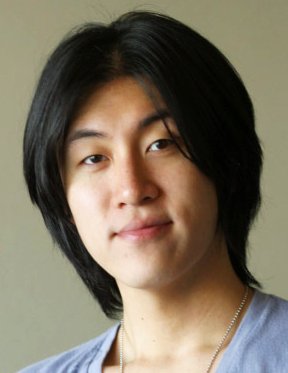Blizzard, BioWare, Valve, more chat about connected gaming
GDC 2010: Rob Pardo, Ray Muzyka, Jason Holtman join Zynga's Brian Reynolds and Nexon's Min Kim to advocate the importance of community in game design.
Who was there: "The Connected Future of Games" panel at the 2010 Game Developers Conference featured some of the biggest names in the online business. On hand to deliver their thoughts on the impact of the connected experience in games were Blizzard senior vice president of game design Rob Pardo; BioWare role-playing game/massively multiplayer online group and senior vice president of EA Ray Muzyka; Zynga chief game designer Brian Reynolds; Valve director of business development Jason Holtman; and Nexon vice president of marketing Min Kim.

What they talked about: The moderator began the session by asking members of the illustrious panel to name the one thing that designers should have in mind when beginning the process of making a connected game. According to Pardo, designers need to have a clear idea of the game's audience and how the community will interact with that connectivity. Muzyka noted that it's important to approach these projects with the mindset of games as an ongoing service; one that doesn't end when a game ships.
For Reynolds, who is notable for creating such hits as Rise of Nations at Big Huge Games--and who now oversees development on the award-winning Facebook game Farmville--designers should focus on the social mechanics of the game as much or even more so than gameplay mechanics. In a similar vein, Valve's Holtman noted that designers need to think as much about designing gameplay mechanics as how the community will experience these devices.

The moderator then brought up Valve's recent announcement of Steam Play, where gamers who purchase one of the company's products can use it on a PC or Mac. Holtman said that arbitrary barriers such as PC and Mac simply aren't important anymore and that gamers want to be fans of the product, not of the platform. The moderator then asked whether this would extend to the Xbox 360 as well, to which Holtman replied, "You'll have to ask Microsoft."
Reynolds then fielded a question about people's inability to shelter certain sides of their behavior from their friends on Facebook, such as constant status updates from games on that service. The Farmville lead said that Facebook is largely at fault here, and that it is important to be able to limit the information to those who are interested in it.
The next question was for Pardo and dealt with whether all game companies should invest in a connected service like Battle.net. The game executive said that it's a good idea, but the amount of work required is substantial. Ultimately, having their own dedicated service is far better than a generic platform like Xbox Live because companies can more closely tailor the experience to their individual games.

To this point, Holtman said that Valve could not have done the kind of teaser campaign it executed with the recently announced Portal 2 on Xbox Live, due to the lengthy certification process. He advocated the PC in this regard, noting that it is an open platform that simply updates on the fly.
Nexon's Kim then fielded a question about polishing an online game in the public eye by way of a beta. Kim noted that it is a necessary evil to have players see an unfinished product through a beta because the company can only really know whether it has been successful with its design when players actually respond to it. Responding to a follow-up question, Kim also noted that it's pretty much impossible to call an online game complete, considering Nexon continually updates some of its games over the course of their life spans, a point the panel concurred with.

The discussion then shifted toward how the designers approach old content, especially in light of new players. Reynolds noted that it's an ongoing struggle between baking up new features for veteran players while maintaining a low level of entry for newcomers. Pardo concurred, noting that the impetus behind World of Warcraft's upcoming expansion Cataclysm was to revisit the new-player experience. With WOW now in its fifth year, the team has gotten much better at creating content, and it is clear that some of the old-world stuff isn't as good as it could be.
Because Nexon is a Korean gaming company, the moderator then asked Kim what lessons his home nation can offer to North America. Kim noted that the gaming environment is completely different in Korea, due to the immense popularity of Internet cafes. These are successful in Asia because the gaming community is gathered together in one room, interacting with one another as they play. This type of experience isn't at all like the Western one, where online gaming is largely a solitary experience in people's homes.

Closing out the panel, Pardo addressed the idea of matchmaking in games, saying it's incredibly tricky to do. Namely, he said that it is difficult to really appraise someone's skill, but it is important to shelter new players from more experienced ones. One other problem that Blizzard is butting up against is that if a matchmaking system works really well, where players are of the same skill level, it leads to very intense play experiences. The thing is, players often can't play more than a couple of intense matches in a row before becoming frazzled and burnt out, so they are wondering if that kind of matchmaking is really what they even want.
Takeaway: The connected gaming experience, shockingly enough, is impacted largely by the community surrounding the game. With more and more games packing in online functionality, not to mention the rise of social gaming on platforms like Facebook, it is increasingly important for developers to cater to the community surrounding their products.
Got a news tip or want to contact us directly? Email news@gamespot.com
Join the conversation